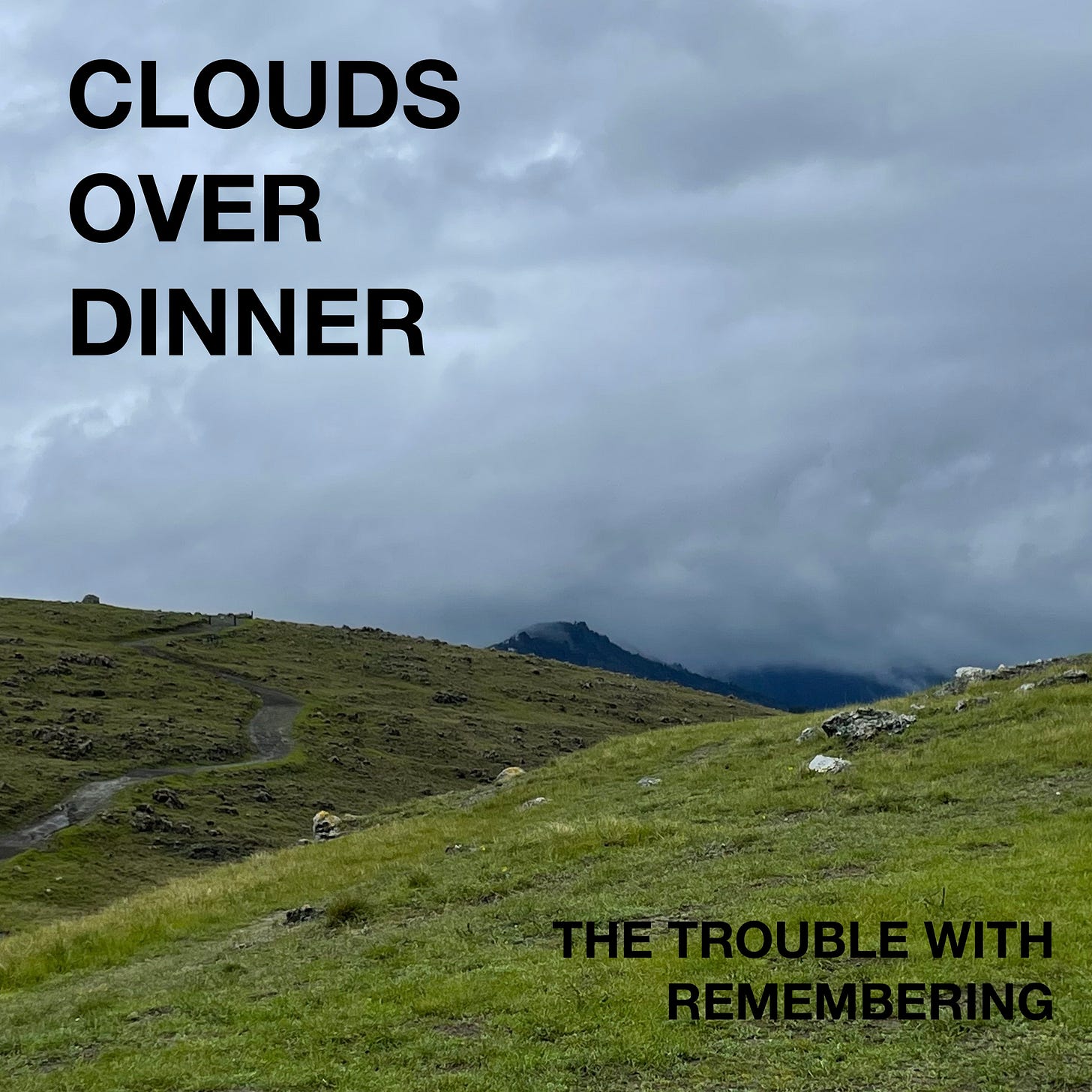Two nights ago, as me and some friends sat outside to celebrate the solstice, a small rain cloud covered the sky and we could feel the drizzle falling. We started to make those light sarcastic jokes about this beautiful start to summer followed by the talk of previous hot July nights in Oakland, then the talk of real summer here in the East Bay, how it never really comes until the start of fire season when the wind switches and the hot Sierra air is blown to sea. But, as we talked about it, and only for a minute or so, it became increasingly less clear what that past was that we were talking about. I couldn’t grasp how much of those summers that existed in our faulty memories were true, or if they were just montages made out of beautiful sunny moments in our heads, followed by our inner monologues telling us that this is what summer should be.
I’ve never really trusted my own memory that much. It’s always seemed to me to be something of an odd thing, how organic material can store, and even to a marginal degree of accuracy, the past is absolutely shocking to me. The fact I remember something, like the word something, and continue to use it with little effort is also astounding. The brain, to put it simply, is incredible.
But memories are faulty. The way we look at the past really is a reflection, as I see it, of how we either think the world is or want it to be. Even if the events are true, the perspective or the story that we place around it often gets in the way of what truly happened in front of our eyes then. A minor event that meant nothing to us at the time could quickly be altered and made into a life changing event as we look back at it. While memories can be a great awakening for those of us who chose to explore what might be hidden there hurting us, memories also hold very little true certainty. This is why I say memories and how we tell them, rightly or not, are our idea of the past, not the actual past itself. And what’s more, like a VHS tape, the more we look back to these events, the more worn the memory, the less tenable the actual event is because we are placing it within a story of our life.
But lives are not stories, though we almost inevitably tell ourselves they are in one way or another. We can't help but try and shape our pasts into stories that fit how we believe the world to be or not, in the same way we can’t help but try and convince ourselves that it shouldn’t be cold the day after the solstice. But these are only perspectives of events, not the events themselves. I think that’s what makes memories so muddy, beside the fact they do change and alter over time. This isn’t to say memories aren’t true, only that the details of each moment is so hard to grasp, that when we make large statements about the past, we might want to second guess ourselves rather than plow on with conviction.
This question came up for me this winter when the media and the state of California was in shock with the onslaught of rains that we felt. I was hesitant, only because I do remember nearly twenty years ago a twenty year storm1 occurred in my hometown with rains that felt just as heavy (the town had recently built a flood prevention system to stop the streets from flooding, which is likely why San Anselmo didn’t see any kayakers in the streets this year).
This winter, as the rains pelted the yard where I lived I wondered how justified this excitement was. Yes, the flooding in the Central Valley was devastating and tragic. Yes, the rains were heavy, but perhaps we’d just grown used to the long drought of the past seven or eight years when the rainy seasons were brief. Perhaps we made a story, made a new memory of what the past was like, and forgot that big storms do happen regularly, but we’d just grown accustomed to dry dirt. I think John Steinbeck has a line about that in East of Eden, how the drought lasts so long you forget there were wet years, and the wet years so wet you forget there ever could have been a drought.
Summer cannot just be one simply put thing, even if we’re just talking about weather. Each day is like an abstract painting of events, everything happening all at once and not for any inherent narrative-driven purpose or reason. We try to make sense out of the abstract painting itself to satisfy our storytelling heads, but really, we’re just trying to make sense of only the smallest parts we can grasp and hold onto.
Who knows, maybe the summers were sunnier in the past, but I’d put money that climate change would like to change our minds on that front.
A 20 year storm for those who don’t know are large storms that on average occur every 20 years. Same for a 10 year storm, or a 100 year storm.




